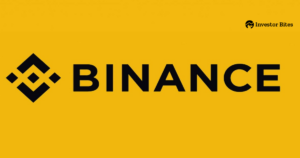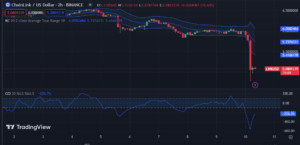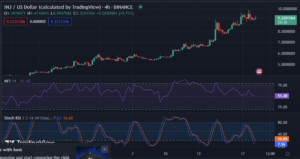
SNEAK PEEK
- Jeremy Hogan argues XRP is not a security under the Howey test.
- SEC rejects Ripple’s claim on “investment contract” needing written agreement.
- The Judge’s understanding of crypto could impact Ripple’s case outcome.
According to attorney Jeremy Hogan, the legal battle between the Securities and Exchange Commission (SEC) and the cryptocurrency industry is not straightforward. In a recent Twitter thread, Hogan cautioned that the outcome of this nuanced legal battle could have far-reaching implications for the future of the crypto industry.
The BIG BATTLE between the SEC and CRYPTO (a thread).
A lot of comments re the below thread suggested it’s a “no-brainer” and asked, why is it taking the Judge so long?
Not true. This is a nuanced legal battle on which the future of “crypto” as we know it may hinge. https://t.co/wsFfzxkuKb
— Jeremy Hogan (@attorneyjeremy1) April 10, 2023
This revelation follows Jeremy Hogan’s previous Twitter post in which he stated that XRP could not be regarded as security since it fails to satisfy the legal standard of security. He argues that the only possible classification for XRP is as an “investment contract.” Although the SEC recognizes Hogan’s viewpoint, they maintain that XRP is a security.
Moreover, in response to Ripple’s assertion that an “investment contract” requires a formal written agreement, the SEC clarified that it is invalid. They did so by citing various cases where there was no such agreement. The SEC further contends that the Howey test, which determines whether an asset is a security, covers nearly all investment purchases, regardless of whether there is a formal written agreement.
However, Jeremy Hogan argues that the SEC believes that the second, third, and fourth factors of the Howey test can replace the need for the traditional elements of a legal contract. This means that a common enterprise and the expectation of profits are the primary considerations when assessing the contract’s legality under the Howey test. As a result, a formal agreement may not be mandated by Howey.
On the same accord, Hogan asserts that the SEC’s arguments and legal precedents do not consider the fundamental characteristic of decentralization in cryptocurrencies. Unlike traditional securities, the purchase and sale of cryptocurrencies do not involve centralized sellers.
Nonetheless, Hogan believes Ripple is more likely to win the case despite the setbacks if the Judge thoroughly understands cryptocurrency technology. However, if the Judge is not familiar with the concept of crypto, Ripple may have to appeal the decision.
- SEO Powered Content & PR Distribution. Get Amplified Today.
- Platoblockchain. Web3 Metaverse Intelligence. Knowledge Amplified. Access Here.
- Source: https://investorbites.com/attorney-jeremy-hogan-weighs-in-on-sec-crypto-lawsuit/
- :is
- 10
- a
- Agreement
- All
- Although
- and
- appeal
- ARE
- Argues
- arguments
- AS
- Assessing
- asset
- attorney
- Battle
- BE
- believes
- below
- between
- Big
- by
- CAN
- case
- cases
- Center
- centralized
- characteristic
- claim
- classification
- comments
- commission
- Common
- concept
- Consider
- considerations
- contract
- could
- Covers
- crypto
- crypto exchange
- Crypto Industry
- cryptocurrencies
- cryptocurrency
- Cryptocurrency Industry
- cryptocurrency technology
- Decentralization
- decision
- Despite
- detailed
- determines
- DID
- elements
- Enterprise
- exchange
- expectation
- external
- factors
- fails
- familiar
- far-reaching
- follows
- For
- formal
- Fourth
- fundamental
- further
- future
- Have
- Hinge
- However
- Howey
- Howey Test
- HTTPS
- Impact
- implications
- in
- industry
- internal
- investigation
- investment
- involve
- IT
- Jeremy Hogan
- judge
- Know
- lawsuit
- Legal
- likely
- Long
- Lot
- maintain
- May..
- means
- more
- nearly
- Need
- needing
- news
- of
- on
- Outcome
- plato
- Plato Data Intelligence
- PlatoData
- possible
- previous
- primary
- profits
- purchase
- purchases
- RE
- recent
- recognizes
- Regardless
- replace
- requires
- result
- Ripple
- Ripple News
- sale
- same
- SEC
- Second
- Securities
- security
- Sellers
- Setbacks
- since
- So
- standard
- stated
- straightforward
- such
- taking
- Technology
- test
- that
- The
- The Future
- Third
- thoroughly
- to
- traditional
- true
- under
- understanding
- understands
- various
- What
- What is
- whether
- which
- win
- with
- written
- xrp
- zephyrnet













